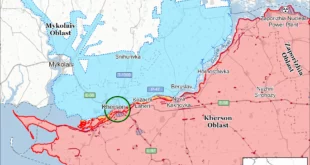After Dutch scientific analysis showed that 70 per cent of Serbian milk samples were contaminated with aflatoxin, the Belgrade government announced that contaminated milk will be destroyed.About 70 per cent of milk samples from Serbia contained aflatoxin M1 in levels higher than the EU limit, while the levels of contaminant in two samples exceeded Serbian guidelines, showed the analysis by RIKILT, a research institute specialising in food safety and quality at Wageningen University in the Netherlands.The permitted level of aflatoxin M1 in milk in the EU is 0.05 microgrammes per kilo, while in Serbia the permitted level is 0.5 microgrammes.
The Netherlands institute analysed 48 samples of milk that was pulled off the shelves in Serbia on February 19th.
The Serbian agriculture ministry stated that the milk that has been found to contain more than 0.05 micrograms of the aflatoxin will be reduced to powder and then burned, while uncontaminated long-life milk will be returned to the shelves.
“The milk that will be returned to the stores is completely safe for use,” Danilo Golubovic, state secretary at the agriculture ministry, told B92 on March 6th.
The milk scandal erupted in February, when Goran Jesic, agriculture secretary in the Serbian province of Vojvodina, leaked the results of an inspection in the province showing that levels of M1 in more than 30 samples from about 10 dairy companies, were up to 200 per cent higher than the legal limit.
Serbia’s veterinary inspectorate has ordered all suspect milk be removed from shelves and samples were sent for analysis in the Netherlands, as recommended by the EU Reference Laboratories, the European Commission’s science service.
In the meantime, Serbia lifted the maximum permitted concentration of aflatoxins to 0.5 micrograms per kilo from 0.05 micrograms on February 28th, claiming that the new level presented no risk to people’s health.
However, after harsh public criticism, deputy prime minister Aleksandar Vucic announced on March 4th that four state officials will be removed from office in connection with the scandal.
The officials who will go are the director of the administration for plant protection, the head of the plant protection administration’s department for plant health and quarantine, the chief of phytosanitary inspection and the head of the veterinary administration.
Vucic also said the permitted level of aflatoxin in milk will be cut back again from 0.5 to 0.05 micrograms per kilo by the end of March.
Aflatoxins, toxic substances formed by a fungus on foodstuffs, are considered potentially carcinogenic, which is why EU member states and Serbia’s neighbours insist on low permitted levels of only 0.05 per kilo. The aflatoxins got into the milk chain through concentrated animal food.
Serbia was hit by a heavy drought in 2012 and some experts warned that around 70 per cent of corn was contaminated by mould. Because the corn was then used as animal feed, cows may have thereby become infected.
 Eurasia Press & News
Eurasia Press & News



